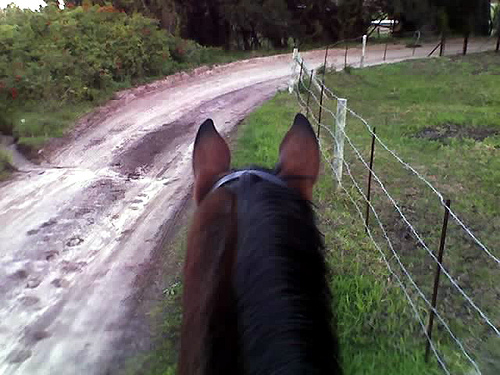It’s That Time Again – Strategic Planning for Authors
As the end of the year looms large, we writers should be thinking about strategic planning. I know—it sounds like work. Boring work. But, honestly, if you don’t plan your writing career, you won’t achieve as much as you hope. Any savvy business owner or entrepreneur will tell you—you have to have a strong, viable business plan. Writers need one too!
I’m going to reprint some of my posts from years back that discuss ways to plan your writing career strategically. This is what I do every year, at the beginning of the year. I sometimes go into great detail. Othertimes I just make a list of what I plan to accomplish for the year.
For me, that can often be enough. But I’ve been executing my writing goals and plans for many years now, averaging about three published books a year for the last ten or so years, along with things like online courses, translations of my books, audiobooks, workshops and retreats, and teaching at conferences.
I always need to lay out my objectives and goals for the New Year, pushing myself to excel, learn, reach new heights, and learn new things. We writers (humans, in general) should strive to learn new things continually. And while we can have an open mind to learning at every turn, being open to life’s lessons, there is something to be said about planning strategically.
That said, let’s spend some weeks in wrapping up 2018 discussing strategic planning of your writing career.
Many of us start looking ahead to a new year with hope, anticipation, and uncertainty. Some of you are probably groaning, for planning sounds a lot like plotting or marketing or promoting—just another thing that times time, effort, and yes—thought! Strategic planning sounds “corporate” to me—all business and no fun. Certainly not as much fun as just winging it with my writing in a creative flair without caring what the future holds.
But most of us have some goals for our writing life. Maybe they’re a bit vague, like we want to become best-selling authors, or we want a lot of fans. I’d like to propose that in order to really succeed in your writing career, though, you really need to get a little more specific.
So, I’m going to delve into some very specific things regarding strategic planning that have helped me a lot, and much of what I’m going to share with you was provided for me by the wonderful Randy Ingermanson, who has the popular blog Advanced Fiction Writing (which you should absolutely subscribe to).
I believe that’s why so many novelists don’t want to put on their marketing hat. There is just too much. . . well, strategic planning needed to execute a plan that is time-efficient, productive, and practical. We don’t want to be bothered; we just want to hole up in our little office corner and write great books.
Your Strategic Plan Is Like Taking a Trip
But, just a little planning isn’t all that painful. In fact, once I got into it, I had a lot of fun dreaming up all the milestones I wanted to reach and allowing myself to envision in specific detail what my “success” will look like a year from now. That’s kind of like writing fiction, right? So try this and see if it helps you. I believe it will—on many levels.
For one thing, if you have a clear plan in place, you can set very specific practical tasks to do each week to reach those goals. And as you reach them, it’s very satisfying. Like when you go on a road trip to a faraway place and you’re checking the map for landmarks and towns along the way, or roadside attractions you want to see.
So when you get to each place you are aiming for, you can cross it off your list and explore and have fun while you’re there. Strategic planning is just like that but without the corny T-shirt you buy at the souvenir stand.
For another thing, it will take much of the mystery and confusion out of your journey, as you have some clear destinations you are striving toward, and that can reduce stress (that and massive amounts of chocolate).
The Four Things That Lead to Success
So all you need are four (yes, just four) basic things in order to succeed in your writing career: vision, strategy, tactics, and action. Here’s a simple explanation of each of these key components of your fabulous strategic plan:
- Vision: You need to have a clear idea of what you want your career to look like in 1, 2, and 5 years. If you want to just plan next year because thinking too far ahead gives you hives, just focus on that.
- Strategy: All this really means is you create a road map you will use to get to that town called “Vision” you just described. If it helps, get out your crayons and paper and draw a neat little Western town called “Vision” on the far right side of a map and draw a long road leading to it. That road is the highway we call “Strategy.” (Or if you want to really get into this metaphor, call it a wagon trail.)
- Tactics: Tactics are the specific methods and skills you will use to achieve various milestones, each by a certain deadline (the word deadline sounds good in here, right?). Draw a bunch of humpy things that look like tombstones in intervals along the road (Okay, you can write R. I.P. on some of them, but don’t pay any mind to the circling buzzards overhead).
- Action: Yep, you actually have to saddle up your horse and ride the long road to get to each of those milestones and then finally to the town you aim to end up in. You are going to have an idea how long it will take you to get to each one of those milestones (where you can water your horse and maybe get some grub). You see how this is like a planned trip with a destination in mind? Don’t forget your Winchester for the pesky rattlers!
Don’t ask me how I got started on this cowboy thing. Must be because my husband and I just watched True Grit again (the new remake, not the old one). But I hope a picture is beginning to form.
Let the Dreams Come
So next week, we will take a long, good look at what your vision might entail and why it’s important to have a very specific one—not just a vague idea. If you are going to plan that trip to “Vision,” you really want to know what’s  there that’s so enticing and worth the trip. In the meantime, think a little about where you are in your writing career, maybe just brainstorm a bit with those nifty crayons, and throw around some ideas of where you’d like to be, as a writer, in the next year or two.
there that’s so enticing and worth the trip. In the meantime, think a little about where you are in your writing career, maybe just brainstorm a bit with those nifty crayons, and throw around some ideas of where you’d like to be, as a writer, in the next year or two.
What does that writing career look like a year from now? What do you see yourself doing? Write down whatever comes to mind, however outrageous or trivial. Hang on to that piece of paper for next week, when we dig in and shape and color that vision a bit . . . pardner.












I am looking forward to this series as a writer hoping to become an author! I just ordered your Shoot, don’t tell book and was wondering if you have a class or book for your 10-20-30 process.
Hi Leslie. Yes, Layer Your Novel (book in print and ebook format) covers all the layers. For an in-depth online video course on the first layer and how to plot out the hero’s transformational journey, check out The 10 Key Scenes That Frame Up Your Novel at https://cslakin.teachable.com/p/the-10-key-scenes-that-frame-up-your-novel/ (or just go to cslakin.teachable.com and click on the course. You have to enroll in my school, but it takes a minute).
Thanks. Your blog was helped me immensely. I had screwed up royally but at least that’s my secret thanks to you! Lol.